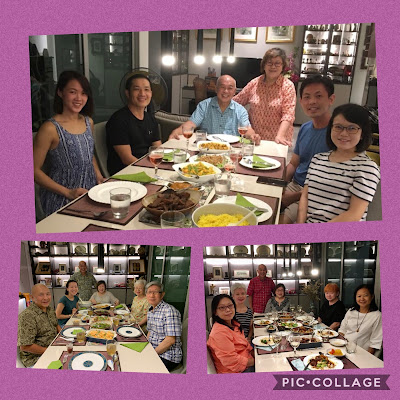 |
| The Covid-19 Virus |
'Who shall separate us from the love of Christ? Shall trouble or hardship or persecution of famine or danger or sword? No for all these things we are more than conquerors through Him who loved us.' Romans 8:35,37
The whole world seems to succumb to the Covid-19 pandemic. Today on the 25 October 2020, 42,946,446 of the world's population had contracted the Covid-19 virus infection and 1,154,857 had died from the disease. For a protracted and unrelenting period, countries and cities around the world are in some form of lockdown, isolated from each other with borders closed and economies devastated. In our lifetime, we have not witnessed a scourge such as this which threatens to bring us to our knees.
This tiny virus may have wreaked havoc to our physical bodies, our mental health and our livelihood but yesterday, a small group of elderly Christians from my church, Charis Methodist Church refused to allow this virus to dampen our spirits. Yesterday, more than 50 of us decided to meet in the Zoom Virtual Meeting platform to lift up our spirits. Despite restrictions of physical meetings we felt we could still show that even the more elderly among us have found ways to keep active within the Covid-19 restrictions.
We showed pictures and videos of our interactions, all wearing masks or using virtual platforms. The older members quickly learnt to use WIFI and the Internet. We shared how our younger church members helped the elders to shop for groceries and to deliver food. We were encouraging each other and learning the heartfelt lessons from the exhortation of the prophet Isaiah,
"Though the mountains be shaken and the hills be removed, yet my unfailing love for you will not be shaken nor my covenant of peace be removed," says the Lord, who has compassion on you.' Isaiah 54:10
Indeed these are troubling times, the Corona virus has spun the world into a global depression. Many of us lost our jobs or took substantial pay-cuts. At such times, a long forgotten Christian chorus comes to mind, 'In Times Like These.'



